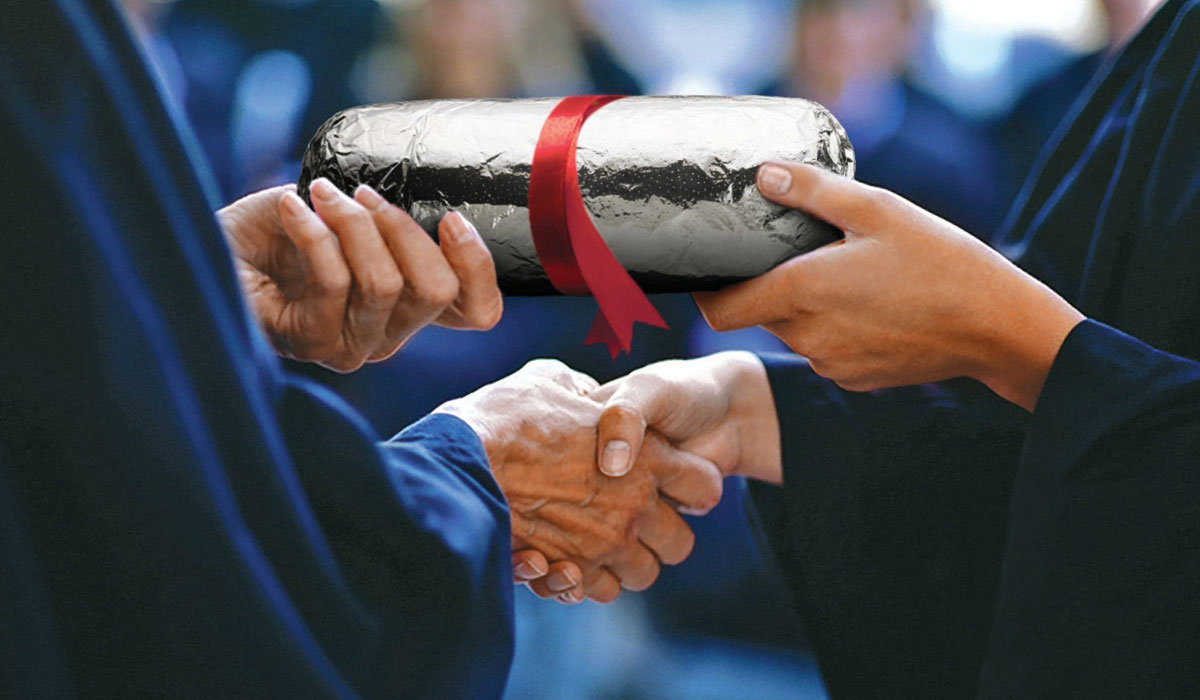Chipotle has been far from idle in its efforts to win what chief restaurant officer Scott Boatwright called the industry’s “talent crisis” earlier in the year. In June, Chipotle launched a crew bonus program that offered hourly employees the chance to earn up to an extra month’s pay each year. By August, the fast casual said more than 2,600 workers across 135 restaurants qualified to earn an extra week of pay, and if teams met certain criteria, such as predetermined sales as well as cashflow and throughput goals every quarter, they were still on track to take home the full month’s bonus, calculated as an individual’s average weekly pay per quarter.
On Tuesday, the brand debuted another bold perk that speaks to one of its long-standing benefits—education assistance. The chain said it will now provide the opportunity for all eligible employees, including crew members, to pursue debt-free college degrees through an expansion of its Chipotle Cultivate Education platform.
READ MORE: How Chipotle morphed into a lifestyle brand
The brand will cover 100 percent of tuition costs up front for 75 different types of business and technology degrees via partner Guild Education.
Chipotle is doing so, it said, “to give employees the chance to gain the skills and knowledge necessary to succeed in the evolving 21st century job market.”
After 120 days of employment, workers become eligible to pursue degrees from nonprofit accredited universities, including The University of Arizona, Bellevue University, Brandman University, Southern New Hampshire University, and Wilmington University.
“Chipotle recognizes that financial barriers can be one of the biggest obstacles that impede our employees from achieving their fullest potential,” said Marissa Andrada, Chipotle’s chief people officer, in a statement. “We are proud to launch this opportunity for debt-free degrees by providing free tuition to help our employees excel in all areas in their lives, both in and out of Chipotle.”
“This expansion of Chipotle’s Cultivate Education benefits program to cover 100 percent tuition costs upfront for degrees in business and technology represents the company’s commitment to upskilling its workforce and helping employees achieve their professional goals,” added Rachel Carlson, Guild Education CEO and co-founder.
The debt-free degree program builds on Chipotle’s current offering, which includes an existing tuition reimbursement program that has provided more than $20 million in tuition assistance over the past two years. It allows workers to be reimbursed up to $5,250 a year at the school of their choice.
Guild Education said 63 percent of students enrolled in the program are first-generation college students and 86 percent have reported feeling that they need additional education to achieve professional goals. Chipotle added that employees accessing its Cultivate Education suite have higher retention rates than non-participating employees. In 2018, Chipotle promoted more than 13,000 of its employees.

Last year, more than 2,600 Chipotle employees ranging from crewmembers to support center staff received over $10.5 million in tuition assistance. In addition, the brand provides access to a personal education coach, tuition discounts, college credits for on-the-job training, and access to exclusive degrees in business management and hospitality. It also offers family members of employees immediate assistant to complete English as a second language and general education classes.
How critical is this? Not only do restaurant employees often seek outside education for future careers, but many of them are already students trying to fund those goals. Twenty-eight percent of restaurant/bar employees are enrolled in school versus just 10 percent of the total U.S. employed labor force, according to the U.S. Census Bureau’s 2017 American Community Survey. A third of all working U.S. teenagers are restaurant employees.
Last year, Chipotle’s rate of internal promotion was 79 percent. It employed more than 73,000 people, including roughly 67,900 at the hourly level. And with some restaurants turning over entire staffs in a year, with rates north of 100 percent, it pays not just to retain workers, but to attract those younger people likely to churn, and to do so consistently amid a cyclical turnover dynamic. In other words, a fight for workers in the “talent crisis.” Finding the best and most capable employees, quickly. One key way to get there is by acknowledging this might be a part-time start to their careers and something that catapults them elsewhere. Embracing that concept by offering education benefits to help them along.
Overall, 30 percent of the eating and drinking place workforce are part-year employees, compared to 18 percent of the total U.S. workforce. Students might not stick around, but that doesn’t mean they’re not valuable when they’re there.
Starbucks has invested heavy in this field, too. Every benefits-eligible U.S. employee working part- or full-time receives 100 percent tuition coverage for a first-time bachelor’s degree through Arizona State University’s online program. Workers can choose from more than 80 diverse undergraduate degree programs.
The java chain’s “Pathway to Admission” platform is an expansion of its Starbucks College Achievement Plan benefit. Through this program, Starbucks and Arizona State University provide an admissions pathway for benefits-eligible employees who do not initially qualify for academic enrollment.They can take up to 10 college-level courses to earn their admission into the university, with credit conversion costs fully covered.
Here’s a look at the turnover challenge at Chipotle, which mirrors a lot of counter-service brands of this scale.
2018
- Restaurant hourly (crew, kitchen manager service manager): 144.9 percent
- Restaurant salary (apprentice, general manager, restaurateur): 49.1 percent
- Restaurant field managers (field leaders, team directors, executive team directors): 26.3 percent
- Staff employees (support center workers and field support employees: 49.9 percent
2017
- Restaurant hourly: 158 percent
- Restaurant salary: 37.1 percent
- Restaurant field managers: 18.7 percent
- Staff employees: 23.9 percent
- A positive note is that the hourly figure is going down.
Here’s a deep look at Chipotle’s employee programs and internal goals for 2020.






